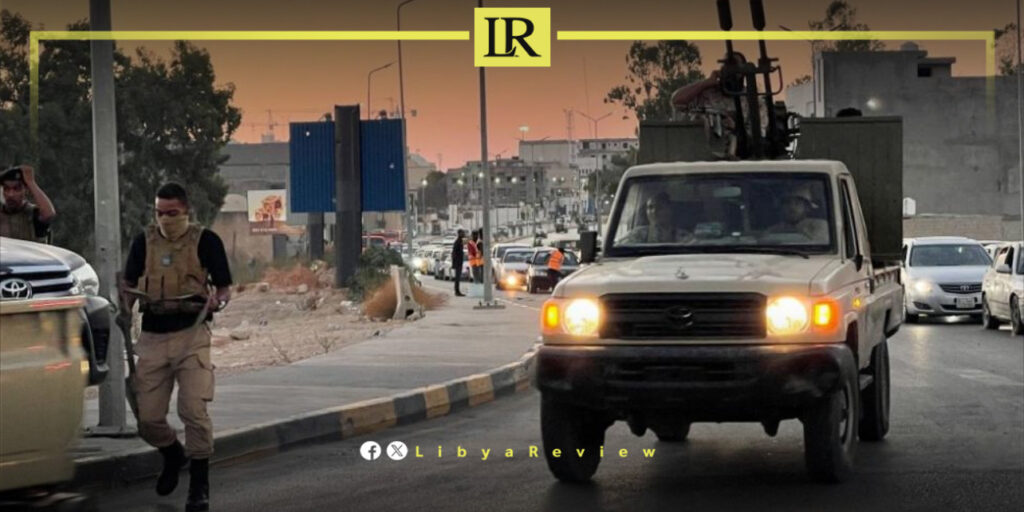Libya’s Judicial Police Authority confirmed Wednesday that several dangerous inmates have escaped from Al-Judaida Prison in Tripoli as a result of intense clashes erupting around the facility.
In an official statement posted on its Facebook page, the Authority reported that widespread panic broke out among prisoners during the heavy exchange of fire near and inside the prison perimeter, allowing a large number of detainees to flee, most of whom were serving long sentences or convicted of serious criminal offenses.
The Authority warned of catastrophic consequences for the capital and nationwide security if the fighting continues, stressing the urgency of restoring order.
Fighting first erupted late Tuesday night and continued into Wednesday morning between forces from the 444th Combat Brigade, affiliated with the Government of National Unity (GNU) and led by Mahmoud Hamza, and units of the Deterrence Apparatus for Combating Terrorism and Organized Crime, led by Abdulraouf Kara, based at the Mitiga Airbase.
Armed confrontations have extended across Tripoli’s eastern and western gates — from Sabaa in the east to Al-Siyahiya in the west, and further south into Ain Zara. No official statement has yet been issued on the number of casualties or material losses.
The security crisis traces back to Monday, following the killing of Abdelghani Al-Kikli, known as “Ghneiwa”, former head of the now-defunct Stability Support Apparatus. His headquarters were seized shortly afterward by the 444th Brigade, backed by the 111th Battalion, commanded by Deputy Defence Minister Abdel Salam Al-Zoubi under the GNU.
While calm briefly returned to Tripoli on Tuesday morning, renewed clashes broke out shortly after Prime Minister Abdel-Hamid Dbaiba issued a controversial decree dissolving the Deterrence Apparatus. The move was rejected by Kara’s forces, who argued that only the Presidential Council, which originally established the agency, has the authority to dismantle it.
The decree has also drawn criticism for being selective, allegedly targeting only armed factions linked to Misrata, while leaving others untouched, adding fuel to an already volatile political and security environment in the capital.


